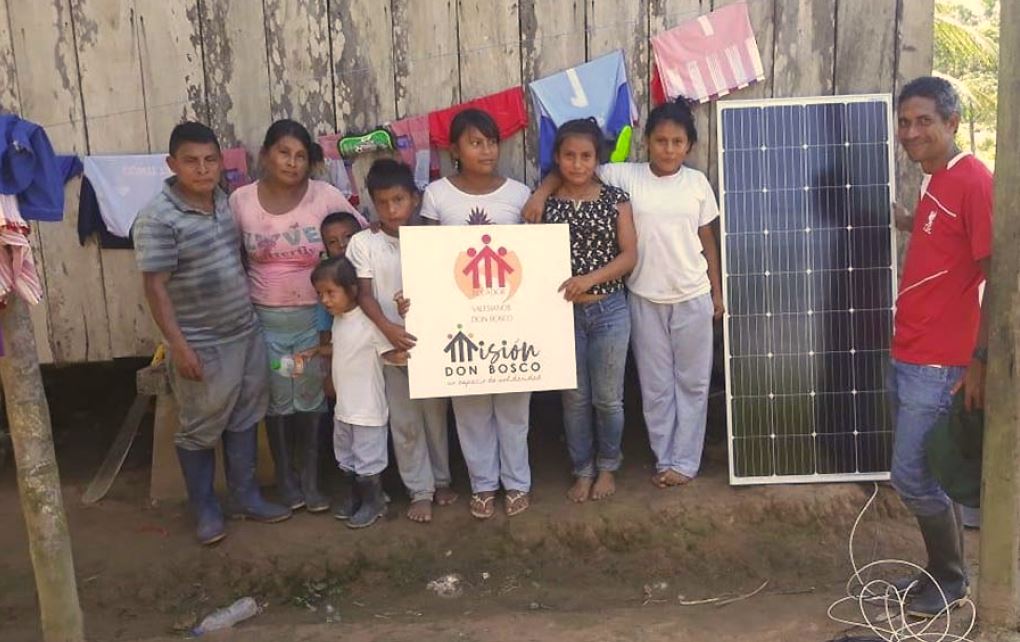ECUADOR: Solar panels, batteries and radios ensure remote education

Salesian missionaries in Yaupi provide solar panels, radios and batteries to ensure youth continue their education remotely
(MissionNewswire) Salesian missionaries in Yaupi, Ecuador, are finding innovative ways to make sure youth can continue their studies during the COVID-19 pandemic. Yaupi and the surrounding areas are remote, and there is no internet access and no television broadcasting signal. Missionaries have provided families in 20 communities kits that include solar panels, batteries and radios to ensure that youth can access their lessons and continue their education from home.
According to UNICEF, only 37 percent of families in Ecuador have internet connection. In rural areas, only 16 percent of households have network connectivity. This means that many children cannot study at home, which is critical since many areas are focused on remote learning during the pandemic.
“Because of how remote these regions in the Amazon are and how little access families have to technology, Salesian missionaries have to come up with alternative means to ensure that youth do not miss school lessons,” said Father Gus Baek, director of Salesian Missions, the U.S. development arm of the Salesians of Don Bosco. “This isn’t just happening in Ecuador but around the globe. From reducing classroom size and teaching outdoors to providing online learning, Salesian missionaries are customizing new plans for education to adapt to circumstances in their local communities. Education has always been a primary focus for Salesians and will continue to be.”
Earlier in the fall, the Salesian Province of Ecuador, in collaboration with Don Bosco Mission and Salesian Polytechnic University, launched the campaign “Donate your computer” to provide technology tools to vulnerable populations in 12 cities across the country. This campaign provided a broad range of technology including tablets, laptops, PCs, keyboards, mice, screens, speakers and electrical cables.
The initial goal of the campaign was to provide 500 technological tools so that children and older youth can attend virtual lessons, continue to digitally meet their classmates, do their homework and maintain hope for a better world through education.
Ecuador is one of the most inequitable societies in the world, according to UNICEF. The richest 20 percent of the population receives almost 50 percent of the national income, while the poorest 20 percent receives only 5 percent. According to the World Food Program, almost 26 percent of all children under age 5 have stunted growth, increasing to 31 percent in rural areas and 47 percent in indigenous communities.
Close to 20 percent of Ecuador’s population is people of indigenous heritage. For poor, rural and indigenous youth, education provides the best opportunity for finding employment, reducing inequities and breaking the cycle of poverty. Salesian missionaries have been providing education and other social programs for disadvantaged youth across Ecuador for more than 125 years.
###
Sources:
ANS Photo (usage permissions and guidelines must be requested from ANS)
ANS – Ecuador – Solar panels, batteries, radios to allow indigenous youths continue their studies
Salesian Missions – Ecuador
Salesian Polytechnic University
Salesian Polytechnic University Facebook
UNICEF – Ecuador





